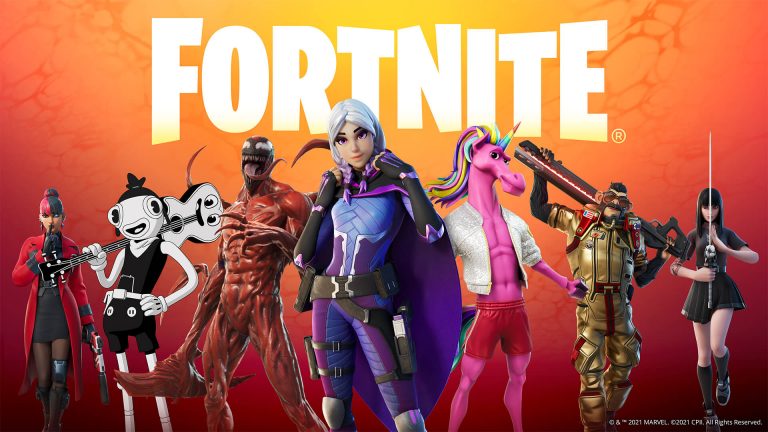
Epic Games’ Fortnite is once again available on iPhones in the United States, marking the end of nearly five years of absence following a high-profile legal clash with Apple over control, commissions, and app store policies.
The game’s return comes after a key legal victory for Epic earlier this year, in a case that has reshaped Apple’s grip on app developers and set a new tone for how digital marketplaces operate.
In August 2020, Apple removed Fortnite from its App Store after Epic implemented a direct payment system in the app, deliberately circumventing Apple’s 30% commission on in-app purchases. The move sparked a legal war, with Epic accusing Apple of monopolistic behavior and anti-competitive practices.
Register for Tekedia Mini-MBA edition 19 (Feb 9 – May 2, 2026).
Register for Tekedia AI in Business Masterclass.
Join Tekedia Capital Syndicate and co-invest in great global startups.
Register for Tekedia AI Lab.
On April 30, 2025, U.S. District Judge Yvonne Gonzalez Rogers ruled that Apple had violated a 2021 court order that barred the company from preventing developers from informing users about alternative payment methods. The judge declared that Apple had “not made a good faith effort to comply” with the injunction and referred the tech giant to the U.S. Justice Department for potential contempt proceedings.
Judge Rogers also ruled that Apple cannot charge developers for purchases made outside of its App Store, a major blow to the company’s longstanding revenue model. This ruling directly opened the path for Epic to return Fortnite to the App Store under its own payment terms.
Following the court’s decision, Epic submitted Fortnite for review on May 9, 2025. But after days of silence from Apple, Epic filed an emergency motion asking the court to force Apple to process the app. The motion stated that Apple “has not responded to Epic’s submission and has offered no timeline for review.”
On May 16, Apple informed the court that the matter had been resolved. And by May 20, Fortnite was officially restored to the U.S. App Store. Epic confirmed the news, stating on its official website: “Fortnite is now available to download from the App Store on iOS in the U.S.”
The version available for download is a lightweight app that expands to the full game after launch. It also offers a 20% discount to players who make purchases through Epic’s own payment system, bypassing Apple’s in-app purchase mechanism entirely.
A Legal Turning Point
The ruling and Fortnite’s return carry enormous implications for the future of mobile app economics. Developers have long criticized Apple’s commission model and its control over iOS app distribution. Epic’s case has now set a legal precedent allowing apps to guide users toward alternative payment options—a move that could save developers millions in fees.
Judge Gonzalez Rogers’ 2025 order builds on a 2021 decision in which she had already found Apple’s anti-steering rules to be anti-competitive. At the time, she issued a permanent injunction prohibiting Apple from “prohibiting developers from including in their apps and metadata buttons, external links, or other calls to action that direct customers to purchasing mechanisms.”
The latest ruling strengthens that injunction and delivers a rebuke to Apple’s enforcement.
“Apple’s insistence on interpreting the injunction narrowly to preserve its commissions undermines the court’s intent,” the judge wrote.
Market Impact and Developer Reactions
The case has sparked discussion in the tech industry about the power of digital marketplaces and the need for more open platforms. While Apple maintains that its policies are necessary to ensure user safety and a consistent user experience, many believe that its rules stifle competition and innovation.
In a statement following Fortnite’s return, Epic CEO Tim Sweeney said, “This is a victory for developers and consumers alike. The ability to offer direct payment options will make the app ecosystem fairer and more competitive.”
Analysts suggest the ruling may have ripple effects across the industry, allowing other developers—such as Spotify, Netflix, and small studios—to adopt similar models.
While Fortnite’s return marks a shift from Apple’s earlier defiance of the court’s judgment, the legal and regulatory battles over the smartphone’s dominance are far from over. The U.S. Justice Department and several states have ongoing antitrust investigations into Apple’s practices, and regulators in Europe have taken steps to force platform openness as well.
However, for Epic and Fortnite fans, the moment marks a hard-fought return. With the app now live in the U.S. App Store again, it represents more than just a game—it’s a symbol of changing rules in the mobile economy.
As Epic reinstates the game, it has also rolled out a new Star Wars-themed season featuring characters like General Grievous, Anakin Skywalker, and even Jar-Jar Binks.



